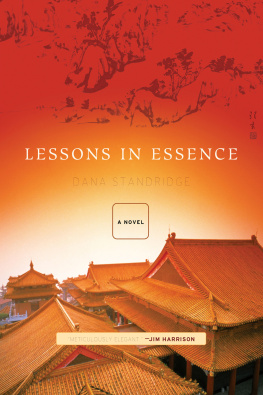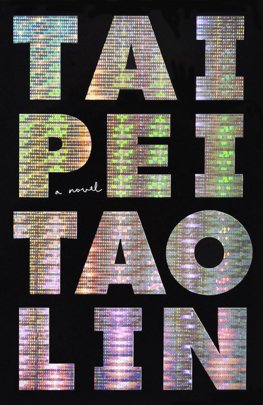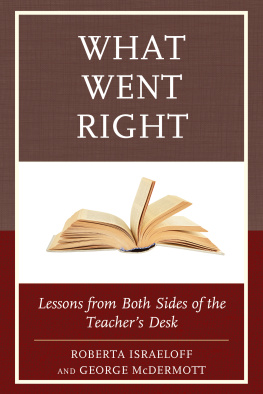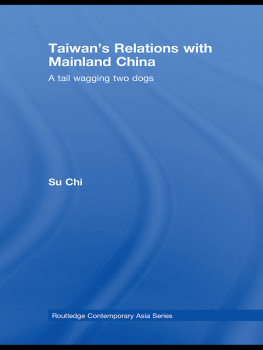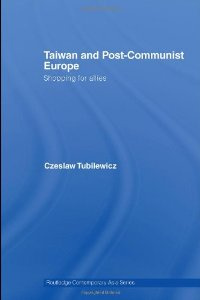Table of Contents
Guide
Page List
LESSONS IN ESSENCE

For my husband, Christopher Roberts
Contents
I close my eyes and everything is fine
I open them again because I love mountains
STONEHOUSE
TRANSLATED BY RED PINE
LESSONS IN ESSENCE
TEACHER LI only noticed the clouds that day because of his inattention. God knows, to see the sky in Taipei is usually a chance occurrence. Cities are designed that way; give the residents only a sliver of freedom, eye blue or pebble gray or jasmine white and glimpsed in tiny, irregular patches above the tops of inward-leaning buildings. Perhaps the old gentleman is exaggerating; after all, he lives in the suburb of Scholars Gulch, in the old section around the university, where buildings are seldom more than a few storeys high. Not only portions of sky but even the green mountains that form the northern curve of the Taipei basin can be seen from almost any northsouth running street in the neighborhood, at least from the center of the street. Many years ago, before Teacher Jiang died and his sons sold his apartment, Teacher Li needed only to climb three flights of stairs from his own second-floor flat to his friends rooftop garden to see mountains releasing into open sky. He had been that close. Thinking back, wasnt he able to see mountains from the window in his own music study before his wife had the air conditioner installed? And that was from an east-facing window. Taipei is surrounded by mountains! A map will reveal what the horizon obscures.
The clouds appeared the day after a withered old Nationalist lawmaker cut his wrists, or perhaps wrist, or perhaps cut is too incisive a verb, though there was blood for the vampire cameras. The gesture was made from the central podium in the legislature the day before, and the blood was still fresh enough for the morning news. Heros teahouse will be writhing with sarcasm, the old tea-drinkers competing with jokes at the legislators expense. It is annoying to be at a disadvantage on such a day, but Teacher Li is distracted. He is just standing there, absently mouthing words. Hong Mei. His lips go, Hong Mei, and he is thinking what a good name it is for a lover. It is much like the motion you might make with your mouth if you knew you had forgotten something, suddenly remembered it, and then lost it again in one smooth ebb of thought.
Teacher Li is standing on his slim front balcony at the threshold of the open sliding door. In the front room behind him, the dark woods of his uncommonly delicate antique furniture and of the many stringed instruments hanging on the walls are deep and lustrous. Black and white brush paintings and calligraphies, all his own work, occupy nearly every other centimeter of wall space, but their arrangement is so balanced that the effect is almost austere. Likewise, books bound in the Western style stand in lines on bookshelves along the lower walls, and numerous tall stacks of traditional Chinese scholars books, string-bound volumes lying supine in brocade boxes, form a miniature city skyline in front of the Western bookshelves. Yet there is no sense of clutter; everywhere the eye travels it finds space to linger.
But Teacher is facing out, and the view is far less refined: a panorama of pollution-stained buildings composed of rectangles of cement and tile, broken up by the smaller rectangles of air conditioners, balconies, and Taipeis ubiquitous iron gratings covering the windows. The security grating creates small cages that gather junk, from rusted folding mahjong tables to rotten mops. The only attempts at beautification are the potted plants that many residents line up on balconies and in the bottom of the window cages. Sun-cracked plastic pots of weeds, or kitschy ceramic pots of bare plants that require little tending and are thus so common in the city as to be near-weeds; Teacher Li rages as he pulses his jaw and studies them. At the end of this unsatisfying survey, his eyes turn to the one balcony that garners his acceptance. There, passionfruit vine, in flower, frames the left and top borders, and a shock of white-petalled bougainvillea fills the lower right quadrant of the picture. His eye finds this mature stand of bougainvillea almost every time he steps to his balcony.
Yet in his own home, he has laid an edict against fresh flowers. His wife disobeys his decree often enough, but remains loyal to her husband by keeping cut flowers only one day before disposing of them in the park or sending them off with a departing visitor. Teacher Li maintains that cut flowers possess only a moment of grace before they succumb to the ugliness of dying. He feels no sadness at their death, but to witness such passing of beauty agitates him. Teacher does not like flowers, his bemused female students intone over tea, though most of his male students begrudge him even the tease. And though he is a master of traditional Chinese brush and ink paintings, he does not paint flowers, neither plum blossoms nor chrysanthemums, to fade and drop. He also detests Chinese carp, the lucky fish that swim in stasis on centuries of Chinese scrolls, their orange, yellow, black, and white markings teeming into ten thousand patterns, an exuberant paean to the infinite individuality of nature. Gaudy. Vulgar. Too colorful. Teacher Li uses only black ink, as the ancients, but this is not a matter of honoring tradition. His choice is purely aesthetic.
Though Teacher Li paints no birds, he seldom rails against traditional bird paintings, as it was such a work that turned him to brush and ink. He was a passionate student of Western art when he saw a classic Japanese painting of a bird on a dead branch. The artist used less than thirty brush strokes. The main limb ascends the void of the unpainted background, the stretch of its longest segment a hair shy of exaggeration, just as a young tree reaches to its utmost in a good summers growth; the perpendicular branch on which the bird perches culminates in a finely enunciated halting stroke, a knob of protection at the clear ending; the wings of the bird are washed lighter than its body, seemingly a shade lighter than nature would permit, and the contrast is ethereal. The bird faces away.
The painting is arresting. When Teacher Li saw it, his perception seemed to suspend, and then suffuse. He deemed the limb, the branch, the bird, the wings, perfectly realized. He contrasted the feeling the work gave him with the yearning he felt when painting in the Western style and made a choice. Perhaps he saw the ardent reach for life in the main limb opposing the sure halt of the dead trees last growth as a metaphor. Perhaps he modeled himself on the ethereal bird with the turned back.
Teacher has been standing in the doorway too long. He takes a step forward on the small balcony and tries to focus on yesterdays news. The legislator had threatened to take his own life to demand the expulsion from the Nationalist party of the former president, the nations first head of state actually born on the island. In recent days, the ex-president had lent support to a newfound party in favor of Taiwans independence and thus despised by the Nationalists, who have longed for reunification with China ever since they fled to Taiwan in 1949 after they lost the civil war.
Teacher Li is remembering the days when the Nationalists first allowed the opposition to compete for a token number of seats in the legislature, at the tail end of nearly forty years of martial law. Though media censorship officially ended, self-censorship was just as effective in keeping new Democratic party legislators from receiving media coverage. Teacher was acquainted with one of the new opposition lawmakers, a confident leftist who wore three-piece suits in a serious gray, an unarguable gray, bolstered by European eyeglass frames that proclaimed his role as an intellectual. To underscore this proclamation, the leftist legislator, at all times, carried a thick volume on European political philosophy, which he commonly placed on the table in front of him when in conversation, symbolically forcing any opponent to defy the whole of European democratic thought to defy him. The book was actually a treatise on revolutionary methods, that much Teacher Li remembered, but written by what philosopher and in what language (the legislator would not be sauntering about with a translation), Teacher Li could not recall, having long forsaken European study. This legislator had managed to capture the medias attention, though not with his eloquence or style: there he was on television, face red with shouting, throwing his fists at Nationalist lawmakers, upending chairs and tables, and with subtle symbolism for the observant, ripping microphones from their jacks. Taiwan political news began to show up in international broadcasts, always as the kicker, or final story meant to leave audience members laughing and shaking their heads. The frequent brawls in the legislature made great television, and foreign networks never bothered to translate what the lawmakers were arguing about. When Teacher Li, who is actually fond of the formal scholars robes he complains of wearing when he gives concerts, saw such scenes on television or heard them discussed, he covered his mouth with his hand and closed his eyes.

